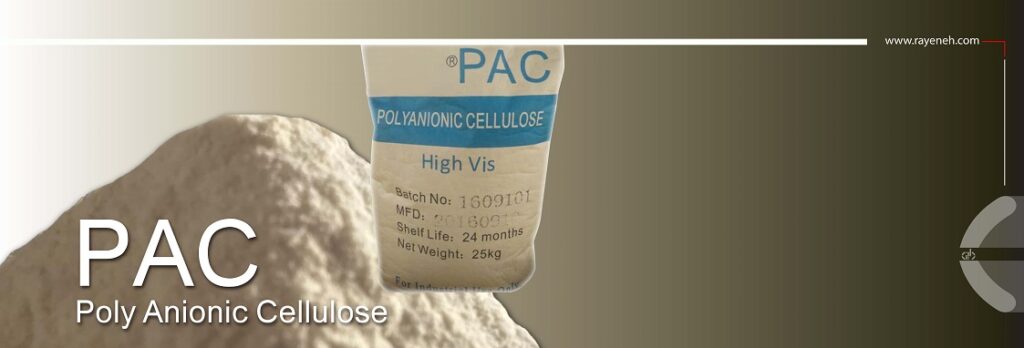
Poly anionic cellulose (PAC) is a water-based drilling mud additive that is obtained from the reaction of sodium salt of monochloroacetic acid with cellulose.
During this reaction, CH2COONa from the acid molecule replaces the hydroxyl unit (OH) in the polymer chain, and as a result, the cellulose polymer insoluble in water turns into a soluble polymer.
This chemical has the same molecular structure as carboxymethyl cellulose (CMC). This substance exists in different forms such as high viscosity or low viscosity. There are 2 grades of PAC: HV and LV.
| Properties | Value |
|---|---|
| The melting point | 274 °C |
| Apparent viscosity | 50 cP for HV grade |
| Appearance | white powder or granules |
Application
- Oil and gas industry
- Drilling industry
Packing
Poly anionic cellulose is sold in 25 bags.
Chemical Formula
- Variable
Other names
- PAC
- PAC LV
- PAC HV
- Fluid loss Polymer
- Drilling Polymer
